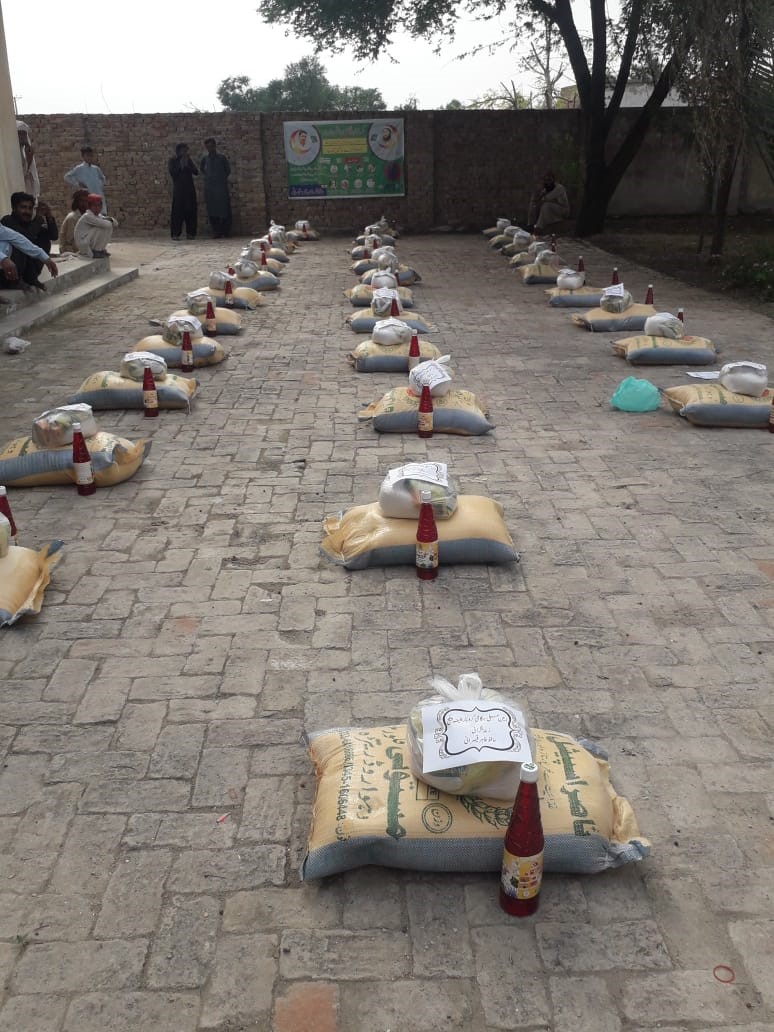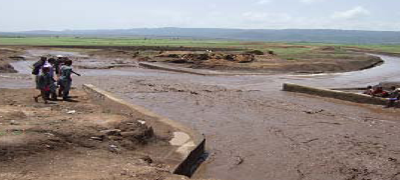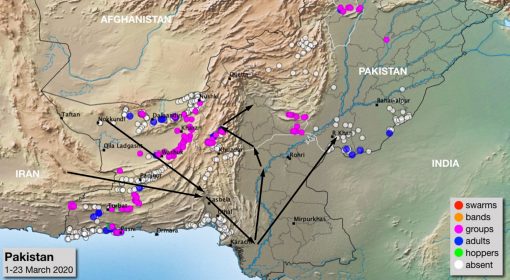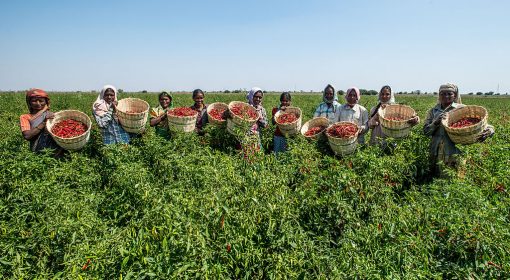by Karim Nawaz
April 20, 2020

Many parts of Pakistan are in lockdown, as part of the nationwide measures to contain the Corona virus. People have been asked to remain in self- isolation. The situation in rural areas is different from urban areas as the population is less dense and settlements are scattered. The busiest places in rural areas are tea shops, where people gather on a daily basis. These have been completely closed.
However, the lack of movement however is taking its toll in ‘spate-irrigated’ areas. These are the vast drylands in the western part of Pakistan that dependent on short term floods for agriculture. This is the time of the year when people in these areas are busy harvesting wheat. The use of machinery is now common, as harvest labour cannot reach these areas. Laborers who would travel to other areas for crop harvesting, using buses and other means of public transportation, are not able to do so anymore due to lockdown and restrictions on mobility. Nevertheless, some individual farm workers have found ways to reach areas However, all in all, the quality of the harvest is said to be low, as there was very little labour around prior to the harvest to carry out weeding.
The lockdown and mobility restrictions pose short term and long term problems. For many farm labuorers these are times of extreme hardship. Additionally, animal sale is now reduced as no livestock markets have been held for the last 6 weeks. Individual farmers are selling their few animals to itinerant traders. In some areas people have prepared food packages to distribute to the ultra-poor.
How to support the population engaged in these spate irrigation areas? Here are some recommendations:
- In the context of the virus, the direct support Ehsaas Program should should cover more landless people, small farmers using spate irrigation, and poor families. Many people in the spate-irrigated areas depend on daily labour, either locally or far away, to earn their living. But these options are now closed. Such rural laborers, especially in remote spate-irrigation areas are not adequately covered and need speecial consideration.
- Civil society groups and the government should start distributing food packets among needy, poor, vulnerable sections of the population across the country. Special focus should be on women, widows, religious minority groups, and the transgenders.
- The food support should be sourced locally as much as possible, to support the local economies
- Ways should be found to ensure that the local sale of small livestock continues. Many poor families depend on the sales of goats and sheep
- People should be encouraged to preserve seeds for the next cropping season, avoiding consuming entire stocks. Appropriate seeds should be supplied where necessary
- Public labour programs should be used for repairing and improving vital spate water management infrastructure – water dividers, bunds, gated field intakes, reinforced field overflow structures, etc.
- Heavy machinery (bulldozers) should be allocated for the construction of the earthen structures on which many spate irrigated areas depend. Such construction should ideally be included in annual development program/public service development programmes.
- Livestock needs vaccination and treatment; the government should ensure that farmers with livestock have access to these. They should also be supplied with animal feed such as wheat straw. Farmers should be trained in making silage, so they can cope meet their animal feed requirements during off-seasons and droughts.
- Small-size equipment for local processing of grains, oil and milk – preferably with solar packs—should be made available to rural communities
- Agriculture and livestock extension programs— leveraging social media, smart phones, and FM radio for maximum outreach—should be started
- Awareness programs regarding corona virus and other health issues need to be accelerated throughout the country. As part of this, personal protective equipment such as masks should be provided. To maintain personal hygiene, soap should be provided to poor people.




